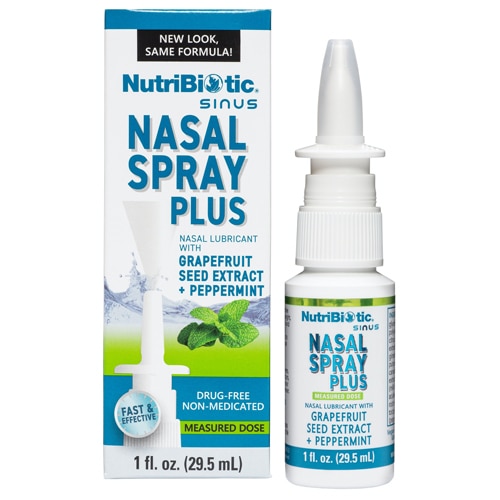As described by the National Institutes of Health, “Your ability to smell plays a key role in your health. If your ability to smell declines, it can affect your diet and nutrition, physical well-being and everyday safety.”
Your capacity to smell is one of your five senses, or methods of perception that allow you to interact with the world around you (the other four are sight, hearing, taste, and touch). You’re probably familiar with how certain scents can evoke vidid memories, enrich experiences, alter your mood and appetite, and even help you to bond with loved ones — thanks to how smells impact the limbic system in your brain. But did you know that in some ways your sense of smell also serves as an indicator of your overall health?
For example, findings from a 2014 study published in the journal PLOS One suggest that how keen your sense of smell is may be able to predict how likely you are to be alive five years later. The study, which was conducted by researchers from the University of Chicago, involved about 3,000 adults between the ages of 57-85. Participants were asked to identify distinct odors, such as peppermint, fish, orange, rose and leather by sniffing the ends of scented felt-tip pens.
Researchers found that 39 percent of the adults who were found to have the “poorest sense of smell” died within five years! This compared to 19 percent mortality rate of adults with “moderate smell loss” and only 10 percent mortality rate of adults who had a more accurate sense of smell.
What your sense of smell can tell you about health
Why would your ability to accurately identify different scents be connected to your overall well-being and longevity? Here are five things that your sense of smell may tell you about your health:
1. Damage may have occurred in your olfactory system
Experts believe that scent loss may be an early warning sign that damage has occurred inside the olfactory system (referred to as “olfactory dysfunction”). The olfactory system is responsible for giving you a sense of smell and includes specialized sensory cells, called olfactory sensory neurons, which are found in patches of tissue high inside the nose, plus neurons inside the brain. Nerves in the nose detect chemical signals and then transmit them to the part of the brain that converts the signals into a recognizable odor.
Having an accurate sense of smell depends partly on a continual turnover of these cells and neurons. This means that a diminishing sense of smell could indicate that less regeneration/repair of cells is occurring. Olfactory sensory neurons can be damaged due to various health conditions, such as: allergies, injury to the head or nose, neurodegenerative diseases, nasal polyps, respiratory infections, use of certain drugs, smoking, dental problems or hormonal problems.
2. Your exposure to pollution & irritants may be high
After the age of 60, sense of smell often begins to decline. Harvard Medical School tells us that “loss of sensitivity to smells — also known as anosmia — is normal as we get older, but there may be another explanation. The most common causes are nasal problems, like nasal polyps, blocked sinuses and seasonal allergies.”
While most people assume that worsening sense of smell is a “normal part of aging”, it may actually indicate that someone has had high exposure to pollution, chemicals, microbes and other substances that are irritating or damaging to the olfactory system. For example, exposure to certain chemicals such as insecticides and solvents, numerous medications including antibiotics and antihistamines, and radiation treatment for cancer may also interfere with sense of smell.
Your sense of smell also serves as a warning system, alerting you to potential dangers — therefore reduced ability to smell may increase your risk for future exposure to gas leakages, spoiled food, fires, etc..
3. You might be prone to common illnesses and infections
There are thousands of nerve endings in the moist surfaces of your eyes, nose, mouth and throat that help you pick up smells and also alert you to irritating substance. Illnesses like severe or reoccurring colds, allergies, respiratory infections and sinus problems can all affect your sense of smell. If your sinuses often feels stuffy, runny and irritated, thereby reducing your ability to smell and taste, this is a sign that a deeper problem may be to blame.
Olfactory dysfunction due to these types of problems are more common in men than women, and most common after the age of 60. Some studies have found that about 25 percent of men ages 60–69 have a smell disorder, compared to 11 percent of women of the same age.
4. You’re potentially at risk for depression
All five of your senses help you enjoy life. Lead scientist in the PLOS One study mentioned above, Professor Jayant Pinto, told BBC News that "The sense of smell is a little underappreciated — it plays a very important part in everyday life.” Another professor, who was not involved in the study, says that "Smell lies at the interface between physiology and psychology, which is a battlefield of reciprocal interactions. For example, smell loss can result in depression, and depression can result in changes in the ability to smell.”
Many studies have shown that there’s a clear link between olfactory dysfunction and depression, partly because loss of smell also leads to loss of taste, and therefore less pleasure from eating. Chewing food releases aromas that access the olfactory sensory neurons through a pathway that connects the throat to the nose. Diminished sense of smell can also make it harder to read social cues (such as by blocking the ability to smell sweat that can indicate fear) and contribute to relationship problems by interfering with bonding.
5. You might have a higher risk of neurodegenerative diseases
Certain studies suggest that loss of smell could be an early sign of some neurodegenerative disease, such as Alzheimer's or Parkinson's disease. Adults with Parkinson’s may experience disturbances in olfaction at the earliest onset of the disease, and typically olfactory response will decrease even more with age.
Experts believe that structural abnormalities, especially in parts of the brain involved in the expression of certain proteins, and altered synaptic organization may contribute to diminished sense of smell in those with neurodegenerative diseases. However, before you start to worry, rest assured that some studies have found that more than 75 percent of people with diminished sense of smell have normal cognitive function.
Final thoughts about your sense of smell
Given the fact that your sense of smell is an indication of how your brain and respiratory system are both functioning, it’s a good idea to start paying more attention to sensory health overall. If you find that your sense of smell is getting worse over time, then you should speak to your physician, especially if it’s accompanied by other physical and mental symptoms. Your doctor will likely want to do a routine examination, looking at your ears, nose and throat.
Want to test your own sense of smell at home? One way to do so is with volatile essential oils, or concentrated essential oils that are used in aromatherapy and studies like the ones mentioned above.
Have a family member expose you to various smells while you guess what they are. Also try inhaling or diffusing oils like lavender or peppermint while paying attention to how the scents affect your energy, mood and appetite. Not only are essential oils used for their strong scents, but also for many other benefits too — like relaxation, reducing muscle tension and enhancing immunity by fighting infections and viruses.




